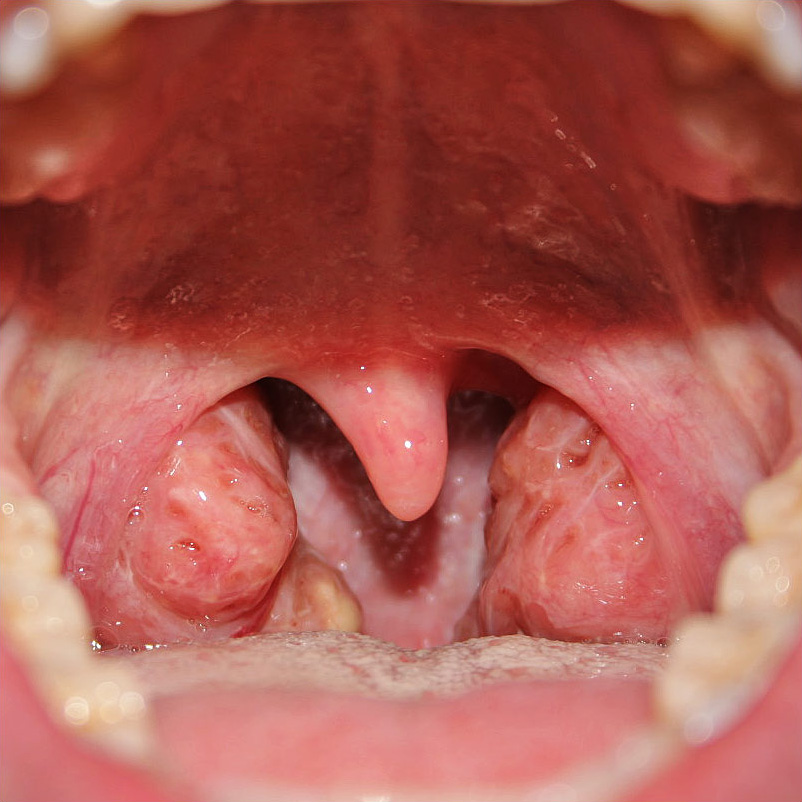
Progressively worsening unilateral sore throat and pain during swallowing usually are the earliest symptoms. As the abscess develops, persistent pain in the peritonsillar area, fever, malaise, headache and a distortion of vowels informally known as "hot potato voice" may appear. Neck pain associated with tender, swollen lymph nodes, referred ear pain and halitosis are also common. Whilst these signs may be present in tonsillitis itself, a PTA should be specifically considered if there is limited ability to open the mouth (trismus).
Physical signs include redness and edema in the tonsillar area of the affected side and swelling of the jugulodigastric lymph nodes. The uvula may be displaced towards the unaffected side. Odynophagia (pain during swallowing), and ipsilateral earache also can occur.
Treatment
Treatment is, as for all abscesses, through surgical incision and drainage of the pus, thereby relieving the pain of the pressed tissues. The drainage may be performed as an outpatient procedure, using a guarded No. 11 blade in an awake and co-operative patient. More commonly, a needle aspiration using a 9 or 10 gauge needle after a lidocaine and epinephrine gargle is used. Antibiotics are also given to treat the infection. Internationally, the infection is frequently penicillin resistant and for this reason it is now common to treat with clindamycin instead. Treatment can also be given while a patient is under anesthesia, but this is usually reserved for children or increasingly agitated or anxious patients.



1 comment:
Concerning issue site page, you'll see my best information, attempt to ponder this level of detail. Create a Wikipedia admin account
Post a Comment